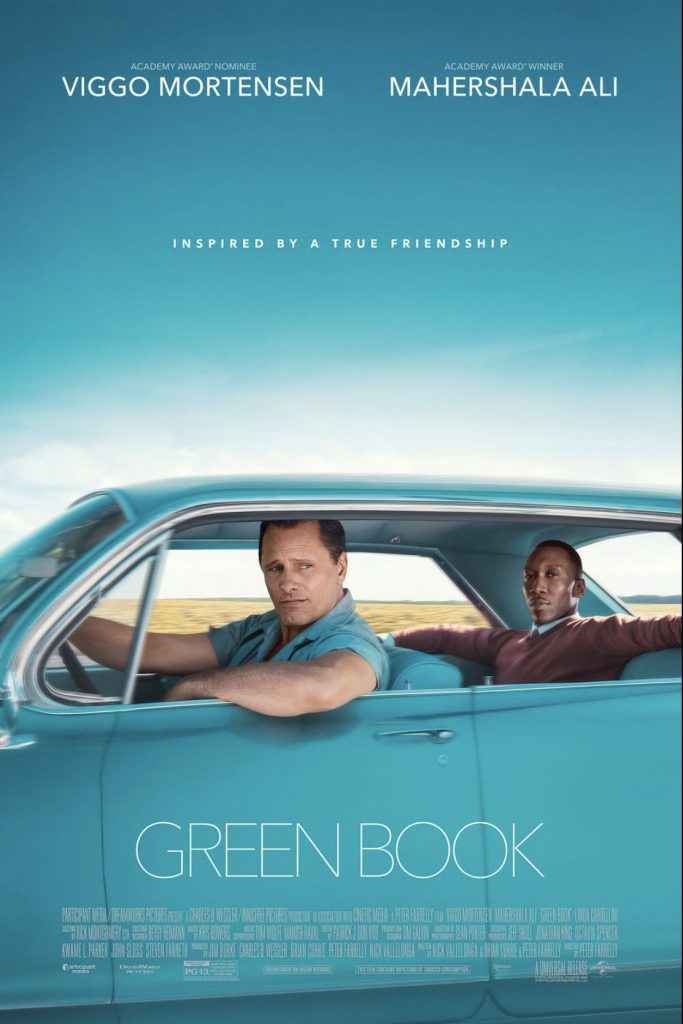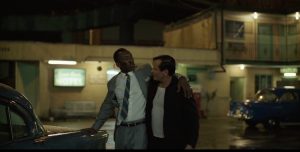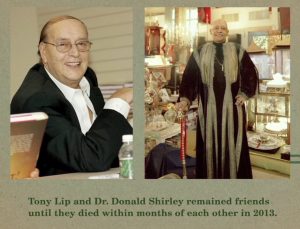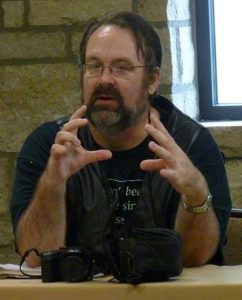 I just had the opportunity to watch the movie GREEN BOOK for the third time as I shared it with my parents (their first), and what continues to resonate with me is how much this film speaks into the divisiveness of modern American culture. We live in an age where people all too often regard people who disagree with them as enemies rather than friends, as people to avoid rather than to friend, as evil rather than ill-informed even, and the result has been a lot of hostility and anger with accusations of bullying from cyber attacks, accusations of this-phobia, that -ism and so on such that people feel they can’t exercise their right to free speech or even to be themselves freely anymore. And it’s a sad state of affairs.
I just had the opportunity to watch the movie GREEN BOOK for the third time as I shared it with my parents (their first), and what continues to resonate with me is how much this film speaks into the divisiveness of modern American culture. We live in an age where people all too often regard people who disagree with them as enemies rather than friends, as people to avoid rather than to friend, as evil rather than ill-informed even, and the result has been a lot of hostility and anger with accusations of bullying from cyber attacks, accusations of this-phobia, that -ism and so on such that people feel they can’t exercise their right to free speech or even to be themselves freely anymore. And it’s a sad state of affairs.
 GREEN BOOK is about the relationship between two men who come to discover how much they have in common and how the expectations and biases they imposed on each other at the start of the relationship are barriers that hindered, not helped their interactions. Tony Lip is a blue collar Italian-American bouncer who struggles to get by and feed his wife and kids, just survive in a dog eats dog world. As an Italian and lower class, less educated man, he is often looked down on by other whites, especially those of means. And he has learned to do what it takes to stand up for himself and get by. Doctor Don Shirley is an African American pianist who lives an elite life surrounded by the wealthy. His apartment is above Carnegie Hall, for example, and he finds himself distanced from his own people because he can’t relate to their daily lives and they can’t relate to his.
GREEN BOOK is about the relationship between two men who come to discover how much they have in common and how the expectations and biases they imposed on each other at the start of the relationship are barriers that hindered, not helped their interactions. Tony Lip is a blue collar Italian-American bouncer who struggles to get by and feed his wife and kids, just survive in a dog eats dog world. As an Italian and lower class, less educated man, he is often looked down on by other whites, especially those of means. And he has learned to do what it takes to stand up for himself and get by. Doctor Don Shirley is an African American pianist who lives an elite life surrounded by the wealthy. His apartment is above Carnegie Hall, for example, and he finds himself distanced from his own people because he can’t relate to their daily lives and they can’t relate to his.
When Shirley decides to launch a tour of the Deep South, his record company puts out a call for a driver, and Lip—having been temporarily laid off when his club shut down for remodeling—responds. He’s rough, curses a lot, and even looks down on blacks similarly to how other whites look down on him. But he needs the work and Shirley needs a protector, so they wind up together. Of course, they clash. Ironically, Lip can’t understand Shirley’s lack of affinity for popular music and food often enjoyed by other African Americans, while Shirley tries to help Lip modify his own attitude and presentation to fit in better with the white upper crust they will encounter on their trip. Both resist, but through dialogue and continued determination, each starts to see wisdom and logic in how the other thinks. But only because they push through the discomfort and listen to each other.
 By the end of the film, Shirley stands up for himself much as Lip has done for him, and he even learns to enjoy the popular music and food common to African American culture. Lip changes his attitude toward people of color and also begins learning how to communicate in more sophisticated, thoughtful, and polite ways as well as confront conflict with words not violence. The result is they forge a genuine friendship and respect for each other, despite their differences and each change a bit to be better men. Now, this movie is based on a real story, which makes it that much more moving to me because the possibility exists for all of us. All of us can come together with people who don’t see the world the way we do and don’t agree with us on important topics and, by listening and actually hearing and being open to what each other are saying, come to deeper understandings about the world and ourselves that can change us for the better. It’s a message of hope for those of us struggling in modern society, and much needed reminder, if you ask me, of times when disagreement was not automatic enmity and could be respected instead of scorned.
By the end of the film, Shirley stands up for himself much as Lip has done for him, and he even learns to enjoy the popular music and food common to African American culture. Lip changes his attitude toward people of color and also begins learning how to communicate in more sophisticated, thoughtful, and polite ways as well as confront conflict with words not violence. The result is they forge a genuine friendship and respect for each other, despite their differences and each change a bit to be better men. Now, this movie is based on a real story, which makes it that much more moving to me because the possibility exists for all of us. All of us can come together with people who don’t see the world the way we do and don’t agree with us on important topics and, by listening and actually hearing and being open to what each other are saying, come to deeper understandings about the world and ourselves that can change us for the better. It’s a message of hope for those of us struggling in modern society, and much needed reminder, if you ask me, of times when disagreement was not automatic enmity and could be respected instead of scorned.
GREEN BOOK is nuances and subtle in its message, however. It does not slam you in the face with it. None of this is stated overtly. Instead it flows out of the story naturally and subtly over its course and the results are quite moving and powerful. In fact, each time I see it, I find something to think about that I’d missed the prior viewings. And to me, at least, that is the sign of a great film. We need more films that speak to this because our society is becoming more divided, not less, more hostile, not less, and more angry and resentful, not less. We compromise less than ever and so do lawmakers, with the result that we all pay a heavy price not just mentally but financially and physically as laws and decisions sorely needed fall by the wayside and nothing changes.
I have had several friendships similar to that of Tony Lip and Don Shirley, and they are among my most cherished relationships because those people are friends I can count on to hold me accountable and make me think through and question myself when I need it most. It’s so easy to shut one’s self off in a box and avoid conflict—surrounding one’s self instead with like minded friendlies—but the danger of that is when you are operating on half information and assumption, you may never correct your course and may carry on with false understandings that can do real harm. Instead, the Tony Lips to my Don Shirley are the very antidote needed to make sure this doesn’t happen to me, and I hope I am the same to them, because I think these kinds of relationships leave us better people for the results. And I don’t know about you but one of my goals in life is to constantly strive to be a better me.
For what it’s worth…

